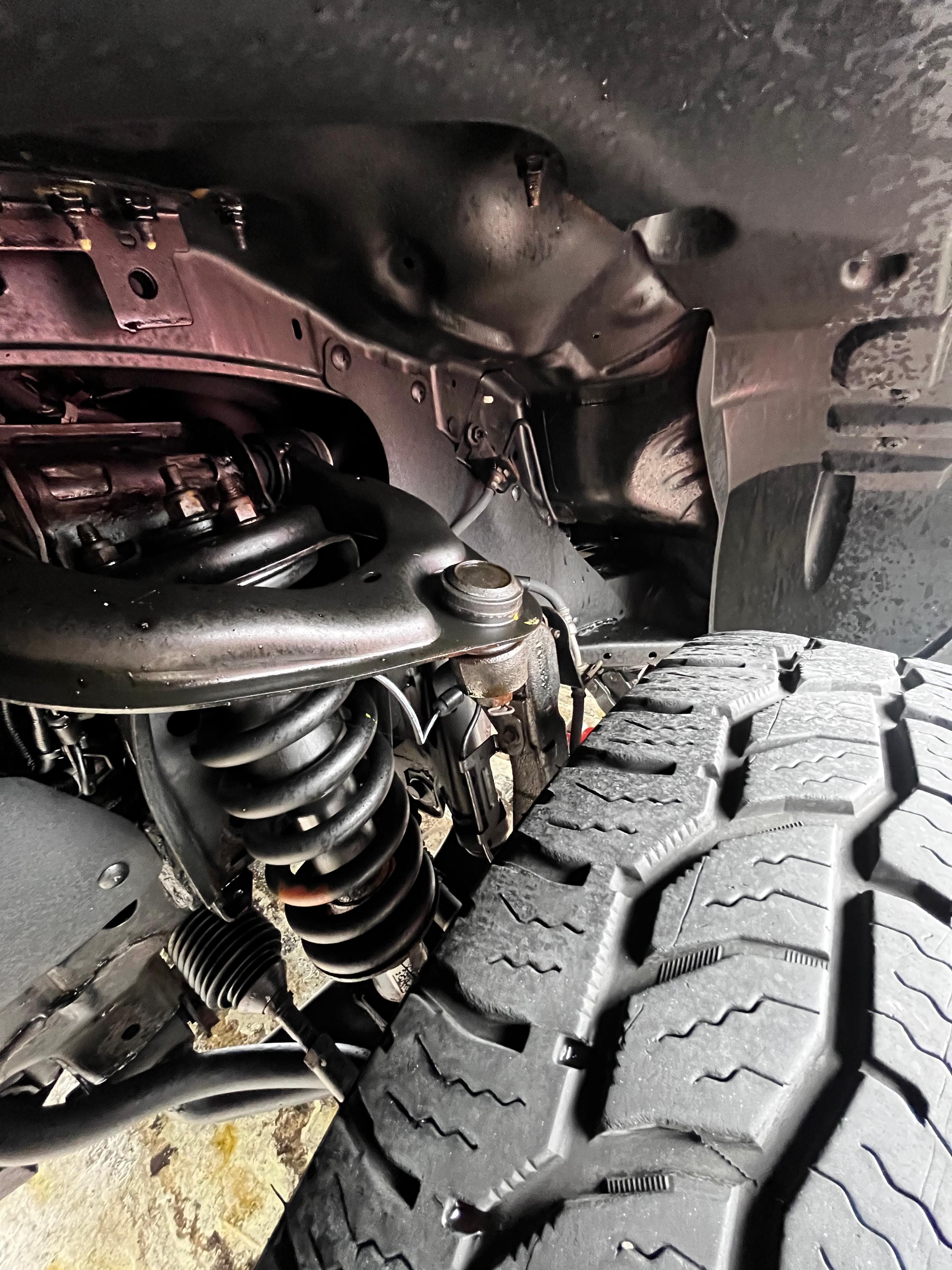









By Jay Bridges, Vehicle Protection Specialist with 10+ Years of Experience
Let’s be honest - when it comes to looking after your car, the underside probably isn’t your first thought. But it should be.
Every week, we see vehicles come through our workshop with rust eating away at suspension arms, fuel lines, and chassis rails. And most of that damage could’ve been avoided with one step: proper underbody protection.
Rust doesn’t just make your car look rough - it can cause MOT failures, compromise safety, and cost you hundreds or even thousands in repairs. Worse still, rusted-out parts reduce your vehicle’s value.

Your undercarriage takes a beating. In the UK, salt is spread on roads to stop ice - but it clings to your underbody and speeds up corrosion. Add in water, mud, and time, and the damage multiplies.
Older 4x4s, classic cars, vans, and Japanese imports are especially prone to corrosion, especially if they’ve never had any rust protection applied. But these days with manufacturers cutting costs where they can, even regular daily driven hatch-backs can start showing underbody corrosion after as little as 2 or 3 years!
We typically use a Mixture of Lanoguard and Bilt Hamber Dynax UC.
Lanoguard is lanolin-based, safe on plastics and rubbers, jet-wash resistant, and ideal for DIY or annual top-ups. It comes in a 2 part application of the Moto Spray for generalised areas and Moto Grease for areas like mountings and bolts
Great for: Generalised under-body protection to all areas, offers a darkening effect.
Bilt Hamber Dynax UC is wax-based underbody and cavity rust protection coating (typically we use the Clear or Black versions). It'sideal for visible areas like wheel arches, underside panels, and inside doors or box sections.
Great for: Cleaner or newer underbodies where a more natural look is preferred and internal chassis rails
DIY is fine if you’re comfortable working underneath your vehicle. But we’ve had many customers come to us after trying it themselves and realising it’s messier or more time-consuming than expected.
Truth be told, application isn't hard in theory; You just clean (a lot), dry and apply. But like anything, having experience helps to get a better result. Having Ramps and jacks can help to access tricky areas more easily.

Yes it can be used on already rusty underbodies - but prep is everything. If the rust is flaking or unstable, it needs removing first. Otherwise, the coatings durability can be reduced. This can be done usually by simple abrasive cleaning such as a wire wheel or brush, sometimes a heavy blast with a jet wash is enough to remove loose rust.
We degrease, remove excessive rust, clean and dry the surface. If necessary we apply a rust converter to heavily corroded areas. Then we apply your chosen product (typically we use a combination of Lanoguard and Bilt Hamber UC) o lock in the condition and slow or stop further corrosion.
Whiie we can and do apply all year round, it's actually best to do it in the warmer months between March and October - The metal’s drier, temperatures are warm, and there’s less road and general dirt and muck on the roads.
We do still apply during the winter, but it is best, if possible, to apply prior to getting into the colder months. It's better to put an umbrella up before it rains.
A clean, sealed underside with visible protection. Peace of mind.
One customer brought us a 2010 Defender 90 with flaking factory paint and rust patches along the chassis. We cleaned it back, treated the rust, and applied Lanoguard. It took us 2 days in total!
12 months later, it still looked fresh, and they booked again for a quick annual top-up only taking a few hours.
They told us:
"I thought it was too far gone to bother with - but now I feel like it’s protected for the future. Glad I didn’t leave it too late."
Yes, but cleaning of heavy rust is recommended and something we carry out on every treatment where necessary. It helps get the best finish and most durable results
No - There is often a common MOT advisory on many used cars over a few years old
Sub-frame corroded but not seriously weakened (5.3.3 (b) (i))
While common, it's never nice to see and typically the first thing any future buyer would do is get on their hands and knees to look straight underneath the car!
Underbody rust treatments often eliminate this as the subframe looks much closer to a new condition - and stays that way.
Lanoguard Claims 12 Months of protection - We have found this to be more than realistic on it's own.
Bilt Hamber Claim up to 5 Years as a stand alone, however,we would recommend an inspection every 12-18 months depending on vehicle usage.
Typically we combine Lanoguard with Bilt Hamber UC Products for durable protection.
With inspections after 18 months typically showing good protection in place with both products.
If you're confident with tools and prep and don't mind getting very dirty, yes. It can be a fun way for some car-lovers to spend their day.
But for most people, professional application is cleaner, quicker, and more durable. Let's face it, after a long week at work and being nagged by our better halves to mow the garden or build that Ikea Cabinet with the silly name we can't pronounce... we often don't have the time and energy!
So that's where a professional service can step in.
Rust doesn’t wait - and once it sets in, the cost of repairs goes up fast. A bit of prevention now protects the long-term value of your car.
At On Track Detailing, we’ve helped protect many vehicles for owners across the UK.
Whether it’s Lanoguard, Bilt Hamber UC, or tailored advice - we’re here to help.
👉 Contact us today for a quote and let’s protect your pride and joy properly.

#lanoguard
#bilthamber
#dynaxuc
#underbody rust protection